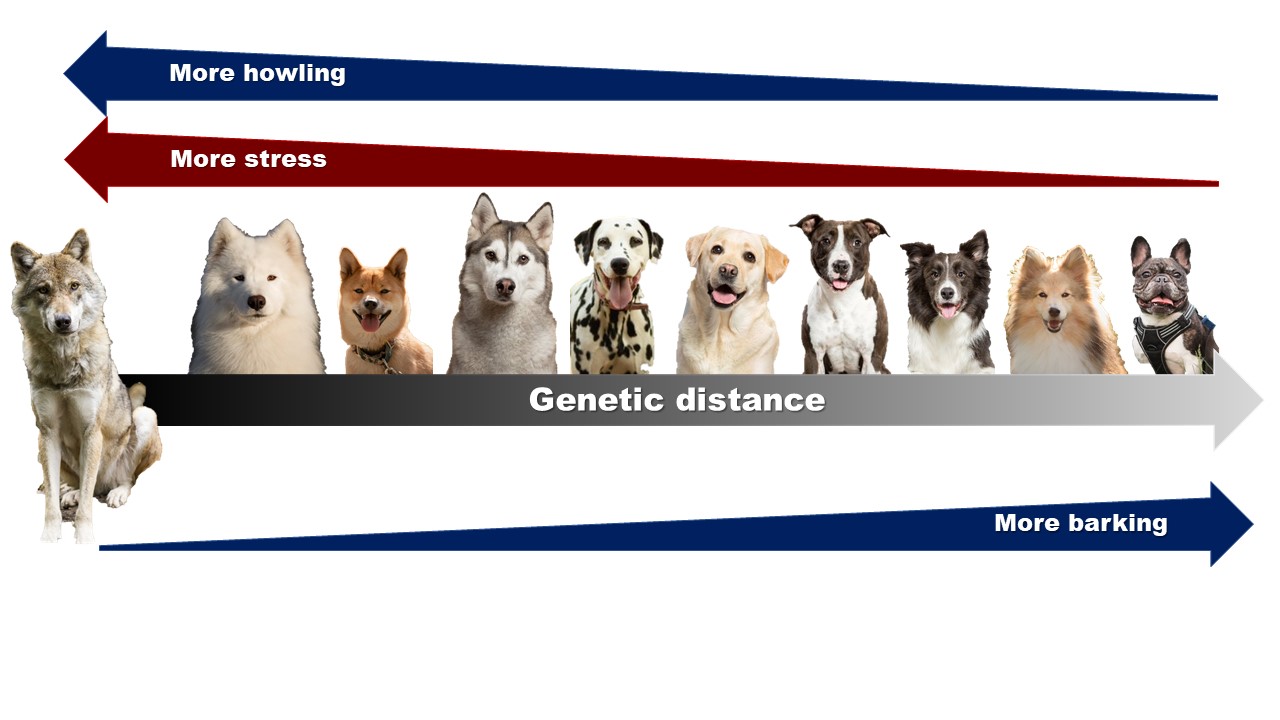Wolves howl to communicate with others long-distance, mark territory boundaries or define the position of the other wolves. Among their domesticated relatives, our best friend the dog, the situation seems a bit more complicated: some breeds are widely believed to be “hard-howlers”, meaning that they frequently howl, even in ‘reply’ to irrelevant sounds like bells, sirens or music, while others never howl even once during their life, even though they are capable of producing them.
Researchers of the Department of Ethology, Eötvös Loránd University aimed to solve the mystery of the dogs' howling. It is the first study whose findings support the hypothesis that domestication and selective breeding by humans fundamentally changed the vocal repertoire and both the perception and production of howling in dogs. This insight brings us closer to understanding the history and impact of the relationship between humans and domestic dogs.
In this research, they tested 68 purebred family dogs by playing back recordings of wolf howls and observing their reactions in a behavioural laboratory.

"According to our results, breeds which are genetically more similar to wolves (“ancient breeds”), are more prone to reply with their own howls to wolf howl playbacks. On the other hand, breeds more distantly related to wolves (“modern breeds”) typically reacted with barking instead of howls. It seems that although howling is present in most breeds’ repertoire, it lost its functionality due to the changed social environment, thus, modern breeds do not use it in adequate situations” - explains Fanni Lehoczki, the first author of the study.
Photo: ELTE INSTITUTE OF BIOLOGY, Unsplash